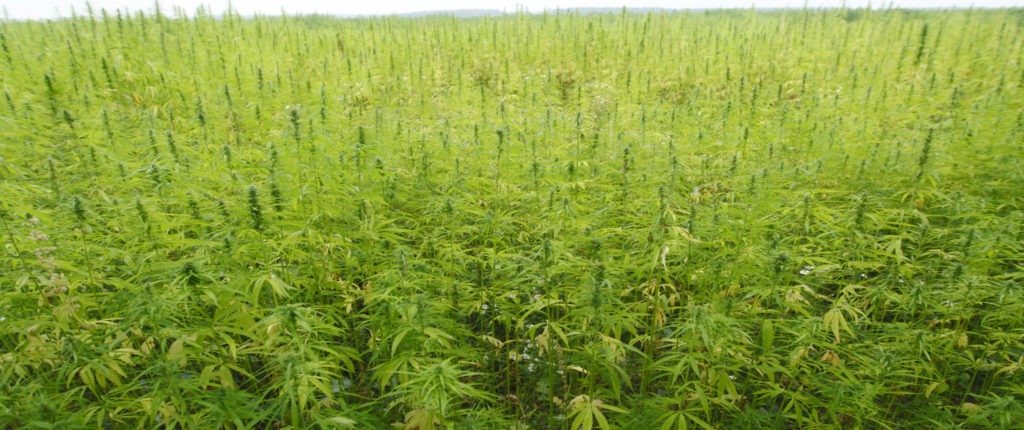BY DR. LLOYD COVENS
More than 45 speakers from around the US joined in on the first US Department of Agriculture “listening webinar,” seeking action to bring some provisions of the new Farm Bill into immediate effect. The three-hour event (March 13) heard farmers, tribal members, regulators, equipment makers and new potential entrants all express their ideas on how to support the advancement of newly-legal hemp (and derivatives) as a priority.
“It is imperative that we provide certainty to the industry, and a level field for all states,” said Colorado Agriculture commissioner Kate Greenberg. She called for USDA to work on federal rules dealing with product labeling standards, a certified seed protocol, access to research, federal matching funds, and a standards package supporting a market for hemp byproducts safe for human and animal consumption. The USDA has signaled it will release full hemp regulations this fall, delaying many expectations that it would begin accepting state plans this Spring and review and approve each one to lay a foundation for how hemp growers can proceed in 2019.
Tribal commentators presenting seven different 3-minute statements called on USDA to create “temporary guidance” to expedite authority for Native Tribes clarity in making 2019 a viable planting year, noting the (still-in-effect) hemp rules of the 2014 Farm Bill provisions did not address hemp authority for Indian reservations. Attorney Sean Berman claimed lack of interim action “is going to hurt tribes,” adding that no state review or oversight is needed, since all agreements are direct between sovereign Tribal nations and the federal government.
The Association of Community Bankers executive director, Mark Scanlon, said that USDA needs to conduct an outreach to financial and insurance institutions to affirmatively state that hemp and its cultivation are now completely legal after the Farm Bill passage on Dec. 21, 2018. At issue is clarity for issuance of new (catastrophic) crop insurance, and the potential for giving farmer much-need financing for planting in a new hemp crop. Another short memo was sought to ask USDA to tell the Bureau of Customs that in-bound foreign hemp seed is no longer subject to lengthy paperwork previously required by the DEA.
Kentucky Agriculture Commissioner Ryan Quarles said he was concerned with farmer access to financial grants in the near term. He added that FDA confusion over CBD as an additive to foods and beverages was further confounding the CBD market. “If FDA regulates too hard against CBD, it will harm small farmers.”
Hoban Law’s hemp expert Garrett Graff said USDA should consider issuing FAQs or internal policy offering “guidance over non-controversial issues which they can apply” before full federal rulemaking, including guidance for sister federal agencies, for example, the Treasury department, or federal road transportation guidance. With his firm representing hundreds of hemp clients, Graff said “industry seeks to bridge the time gap — this spring to Fall, 2019—where growers might find some effective guidance.” Product labeling protocols, or crop storage practices were another area which could be copied from other federal agencies.
Colorado activist/grower Veronica Carpio wants the USDA to consider a long-term view of promoting certified seed programs, designed to provide plants which do not surpass the .03 THC delta-9 limits. Carpio’s goal is to eventually allow certified seed users to be exempted from state-mandated end-of-season .03 tests. Carpio told USDA under 21 age limits to work hemp fields should be lifted and wants the modification of strict background check requirements contained in the Farm Bill. In direct reaction to FDA’s CBD confusion, Carpio applauded the inclusion of “CBD- as-not-adulterated” in language within New Mexico’s new hemp legislation, much like Colorado’s 2018 allowance (which she co-authored) for CBD to be combined with foods.
Another commentator from Kansas suggested USDA allow turning hemp burning past .03 to be processed into “biochar”, which would eliminate the THC present in the resulting soil-amendment. Other post-over THC uses might include animal bedding, conversion to sleep helping CBN, or state-allowed conversion to livestock feed. For non- consumable hemp, another caller said the THC limit for fiber should be raised to 5%, since there is no likely THC-abuse potential when creating products like hempcrete, electronics or textiles. From Florida, Ethel Rolland wants USDA guidance on post-harvest processing policies, including conversion to interim “paste” and long-term storage. Several callers want more certainty that hemp shipments crossing state-lines could be assured of freedom from seizure, following adverse recent holds on hemp products passing through Idaho, Oklahoma and Ohio.
No USDA responses were delivered during the 3-hour event. Software problems from teleconference vendor ZOOM, repeatedly dropped calls, or lost witnesses waiting in the cue altogether. Session hosts said a compilation of comments, with some agency responses, could be expected before mid-April.
 –Based in Denver, Dr. Lloyd Covens, DBA is a seasoned cannabis industry journalist and the publisher of West420 NewsWeekly. Writing his doctorate on diffusion of innovations, Covens has been an expert journalist/researcher for 20 years chronicling new technology, global television and renewable energy advancements. He has reported on developments in the cannabis and hemp industry with weekly reports since 2014 covering the western U.S. for legal medical cannabis, recreational sales and hemp production. Covens is also the creator of the annual CO Hemp CBD conference held in Pueblo, Colorado.
–Based in Denver, Dr. Lloyd Covens, DBA is a seasoned cannabis industry journalist and the publisher of West420 NewsWeekly. Writing his doctorate on diffusion of innovations, Covens has been an expert journalist/researcher for 20 years chronicling new technology, global television and renewable energy advancements. He has reported on developments in the cannabis and hemp industry with weekly reports since 2014 covering the western U.S. for legal medical cannabis, recreational sales and hemp production. Covens is also the creator of the annual CO Hemp CBD conference held in Pueblo, Colorado.


